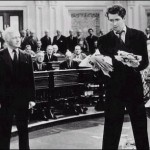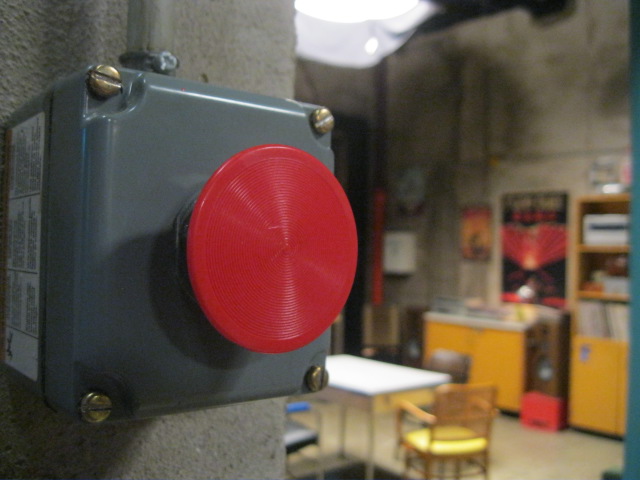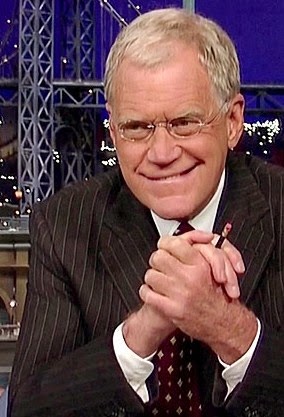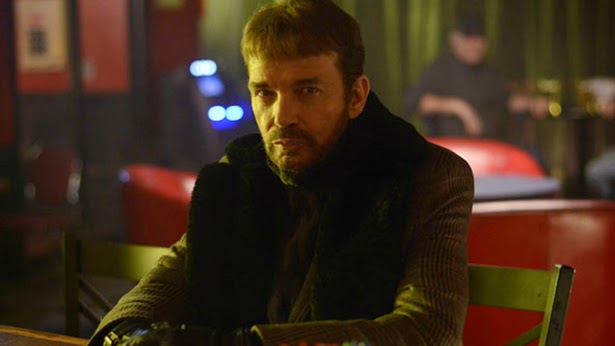 Nicholas Campbell is a bad pony player and a hell of an actor. He proves the latter again tonight in Part One of The Englishman’s Boy (8 p.m. on CBC). The other he admitted to Brian D. Johnson in a jaw-dropping read (“Nicholas Campbell explains how he threw it all away“) in the current issue of Macleans.
Nicholas Campbell is a bad pony player and a hell of an actor. He proves the latter again tonight in Part One of The Englishman’s Boy (8 p.m. on CBC). The other he admitted to Brian D. Johnson in a jaw-dropping read (“Nicholas Campbell explains how he threw it all away“) in the current issue of Macleans.
Neither comes as a surprise to anyone who knows Campbell well. I don’t, but I’ve interviewed the Toronto-native on a number of occasions. A few years ago, before a Gemini Awards broadcast, I arrived for a scheduled interview with the actor at the hotel adjacent to the broadcast gala. From the concierge to the cleaning staff, they LOVED they guy and offered to walk me straight to him; I thought it was cool that he was way more interested in them or me then any Gemini talk.
He’s a gentleman and a fellow well met and a fascinating character and, yes, whatever his net worth was at the time, he’s put double that on a horse more times than he can remember.
Campbell was quite candid about his personal finances in 2005 when I spoke to him in LA. Da Vinci’s Inquest was being promoted to U.S. critics after Superstation WGN picked it up for syndication. It had a very successful launch down there, creating a windfall at the time for Campbell and executive producer Chris Haddock.
Unfortunately, Campbell couldn’t enjoy his US cash grab (back when that was a bonus buck). He had worked a deal with Revenue Canada, who took the whole pot. Part of his on-going commitment to pay back all those taxes he either ignored or invested in four-legged prospects.
If only the Feds couldn’t just accept his great performance in The Englishman’s Boy as what it is: gold. Campbell steps right into Shorty McAdoo’s well-worn cowboy boots. As an ornery loner with a searing tale to tell, Campbell is spellbinding. As an actor, he’s an actor’s actor, our Robert Duval. He completely inhabits his character and disappears into his part.
He also uses his face, which has grown all Mick Jagger on him, to great advantage. Da Vinci was intense but fit both mentally and physically; Shorty is damaged and deadly. With his grey, scarred, sandpaper puss, the guy looks like he’s been through hell and you better not bug him about it, even though that’s exactly what Michael Therriault (above, with Campbell), who plays the silent movie-era screenwriter sent to pump McAdoo for his story, does for much of the movie.
I haven’t read Guy Vanderhaeghe’s Governor General’s Award-winning book which he adapted for this movie. Those that have are raving about the film and Campbell’s interpretation of this fascinating character.
To be honest, I found the TV-movie dragged in spots, especially near the beginning. There were a few times when I just wished I was watching Deadwood and that McAdoo had rode into Ian McShane’s saloon. There were other times (especially when R.H. Thomson stole every flashback as an ultimate bad-ass out for vengeance at any cost) when I felt like I was watching Deadwood–it was that good.
Campbell and David Milch–somebody introduce these two and sign the cheques to CASH. In the meantime, check out The Englishman’s Boy and try and take your eyes off Campbell.

Prev Post

Next Post




